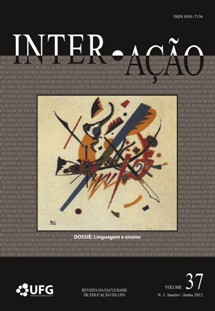CULTURAL AND MORAL FORMATION : A CRITIQUE OF REASON
DOI:
https://doi.org/10.5216/ia.v37i1.18876Abstract
This paper set out to reflect on the relationship between morality, reason and emancipation in contemporary society. It is mainly interested in confronting the idea of morality with the urgency of a critique of reason in the sense of searching for enlightenment and autonomy, using the Critical Theory of the Frankfurt School as a reference. It is understood that discussing the perspective of ethics in a society based on modernity is an essential step towards understanding the possibilities of a formation process which leads to overcoming the intellectual and moral heteronomy of contemporary man.Downloads
Downloads
Published
How to Cite
Issue
Section
License
Inter-Ação uses the Creative Commons Attribution 4.0 License for Open Access Journals (Open Archives Initiative - OAI) as the basis for the transfer of rights. Open access means making documents available on the Internet free of charge, so that users can read, download, copy, distribute, print, search, or link to the full text of documents, process them for indexing, use them as input data for software programs, or use them for any other lawful purpose, without financial, legal, or technical barriers.
Authors publishing in this journal agree to the following conditions:
1) Authors retain copyright and grant the journal the right of first publication, with the work simultaneously licensed under the Creative Commons Attribution License, which permits redistribution of the work with attribution and first publication in this journal.
2) Authors are permitted to enter into additional, separate agreements for non-exclusive distribution of the version of the work published in this journal (e.g., for publication in an institutional repository or as a book chapter), with attribution and first publication in this journal.
3) Authors are permitted and encouraged to publish and distribute their work online (e.g. in institutional repositories or on their home page) at any time before or during the editorial process, as this may generate productive changes as well as increase the impact and citation of the published work.















